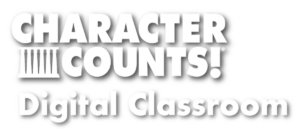To a large extent, the nature of your relationships with students dictates the impact that you have on them. If you want to have a positive and lasting difference in the lives of children and young people, you need to forge productive teacher/student relationships.
Advocates of evidence-based education know that students who have constructive relationships with their teachers are more likely to do well at school, and teachers who actively build such relationships have a strong effect on the lives of their students.
Application
- From your experience as an educator, how can positive teacher-student relationships help to draw students into the process of learning while promoting their desire to learn?
- In the video, Gary shared that he often asks educators, “What is the most positive educational experience you have had as a student, and what made it so?” How would you respond?
- What do good teacher-student relationships matter for our school?
- What do positive teacher-student relationships look and feel like in the classroom? In contrast, what do negative teacher-student relationships look and feel like?
- How do teacher-student relationships relate to classroom climate?
- How has the implementation of CHARACTER COUNTS helped to create a more caring and respectful school? In what way does this impact our school’s effort to improve teacher-student relationships as well as peer-relationships?
How to improve relationships with challenging students?
Develop positive discourse with students with challenging behavior
Think about what you say to the difficult students in your classroom. Are you constantly bombarding your more challenging students with requests to do something? Do you find yourself constantly asking students to stop doing what they are doing? No one likes being badgered and pestered, and your students are no exception.
- Try to find a time or place when you can have a positive discussion with the problem student.
- Notice and mention the positive behaviors they exhibit.
- Remind yourself that even if a challenging student appears unresponsive to your requests, she is hearing the messages that you are giving her. Her responses may not change her immediate behavior but may matter in the long term.
Make an extra effort to develop and sustain relationships with difficult students
Difficult students require more energy on your part. For example, you may need to spend time with them individually to get to know them better — to understand their interests as well as what motivates them. This will not only allow you to tailor your instruction to their interests and motivation but the time spent will also allow them to develop trust in you. Recent research on high school students who have frequent and intense discipline problems shows that when adolescents perceive their teachers are trustworthy people, they show less defiant behavior (Gregory & Ripski, 2008). Persistent teacher-student conflict throughout the elementary years increases the likelihood that children will exhibit negative externalizing behaviors (O’Connor et al., 2012), so it is important for teachers to build close relationships at an early age with children at-risk for behavioral issues.
Improving Students’ Relationships with Teachers to Provide Essential Supports for Learning, Sara Rimm-Kaufman, PhD, and Lia Sandilos, PhD, University of Virginia. https://www.apa.org/education/k12/relationships
Hear more from Gary on Twitter – @GSmit4Character


